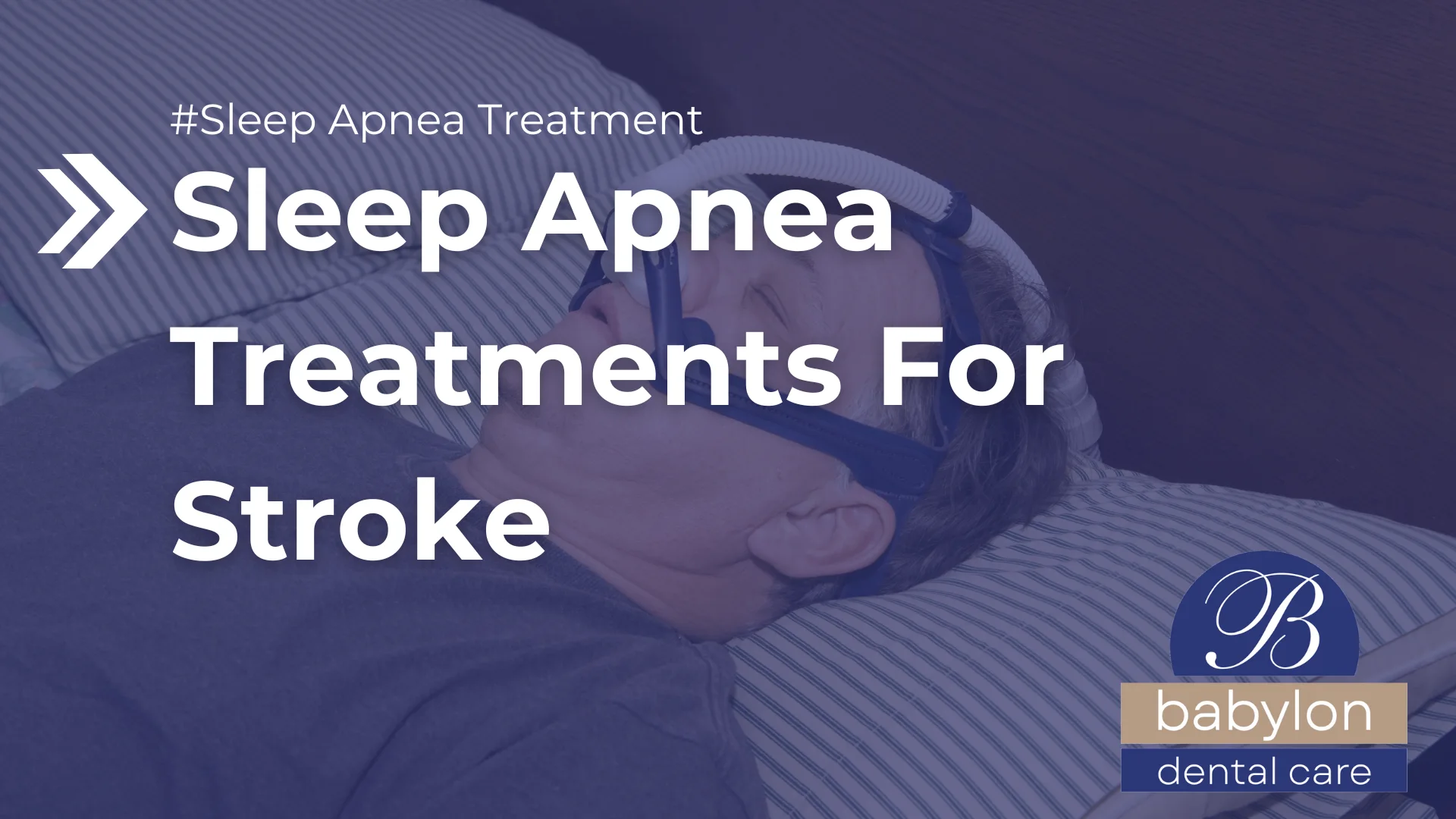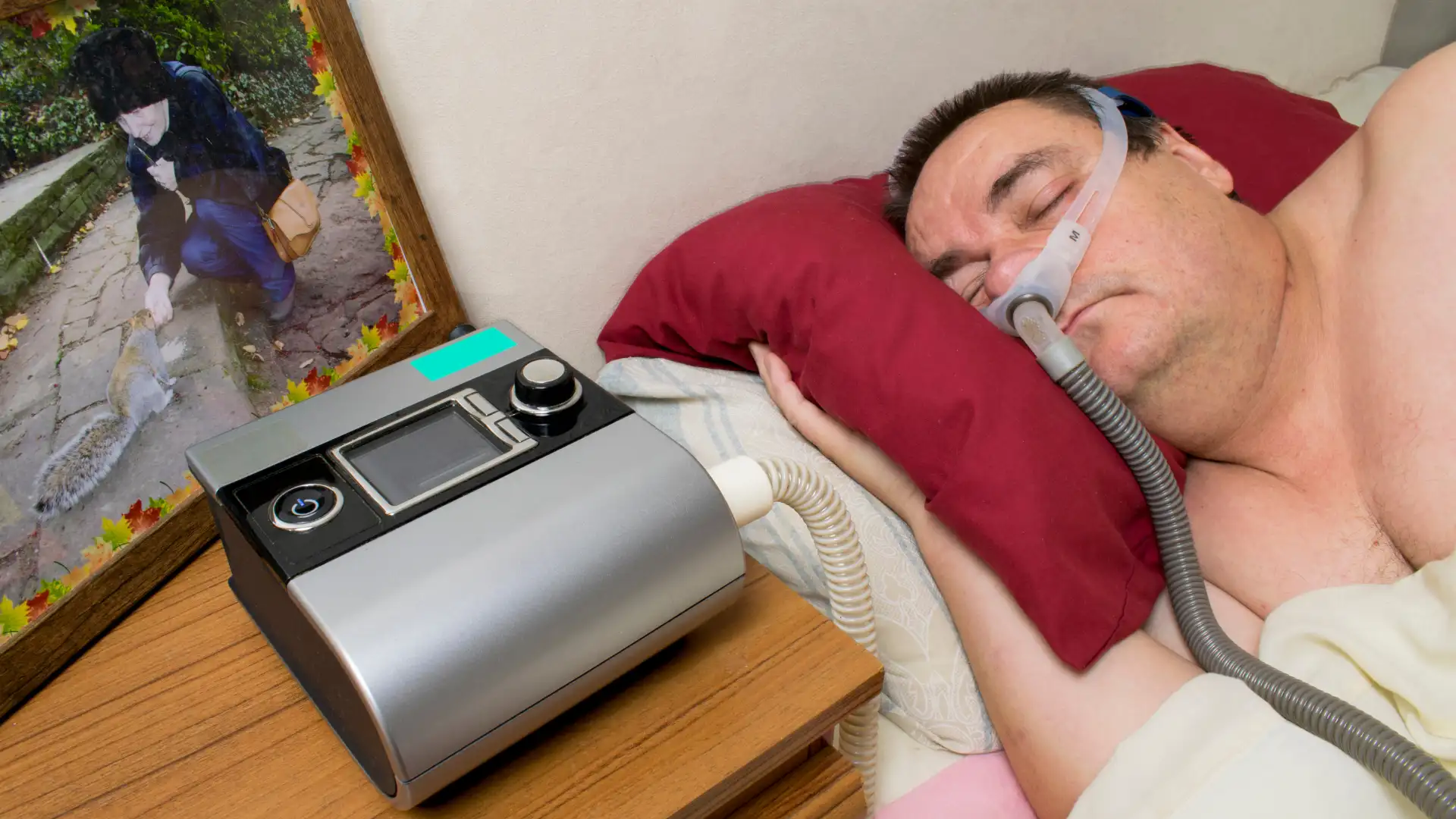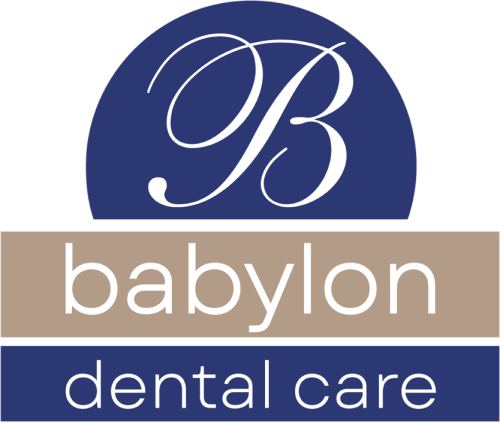
Loud snoring is one of the primary indicators of obstructive sleep apnea (OSA). OSA occurs when the muscles at the back of the throat relax, closing or narrowing the airway as someone breathes in. Insufficient air lowers blood oxygen levels, briefly jolting the person awake. A repeatedly collapsing airway during sleep creates negative air pressure inside the chest. That can reduce blood flow to the brain, increasing the risk of a stroke. OSA is an independent risk factor for stroke. The more severe the sleep apnea, the higher the chance of having a stroke. If you are concerned about your sleep apnea, there is hope. We can help you with sleep apnea treatments for stroke.
If you think you have sleep apnea and need help managing the condition, your sleep, and your breathing, call the Babylon sleep apnea specialists at Babylon Dental Care at (631) 983-6665 for a consultation.
What Is a Stroke?
A stroke, also called a brain attack, occurs when blood stops flowing to the brain. The brain requires a constant supply of nutrients and oxygen to function correctly. Restricted blood flow can lead to medical issues, even for a minimal period. Brain cells can die without access to oxygen or blood after only a few minutes.
The brain doesn’t work optimally when brain cells die. Stroke can affect a person’s ability to complete basic tasks, such as:
- Controlling emotions
- Speaking
- Remembering and thinking
- Controlling bladder and bowel function
- Eating
- Moving
There are two main types of stroke:
- Hemorrhagic stroke – A hemorrhagic stroke occurs when a blood vessel in the brain bursts, causing blood to spill into nearby brain tissue. Increased pressure in the tissue leads to more irritation and damage.
- Ischemic stroke – An ischemic stroke is the most common type. It occurs when something blocks a major blood vessel in the brain, such as a buildup of fatty deposits or a blood clot.
Most Common Symptoms of a Stroke
A stroke requires emergency medical attention. It can be fatal if left untreated. Symptoms can vary, but the most common signs of a stroke include:
- Trouble walking or moving
- Challenges speaking or understanding
- Severe headaches with an unknown cause, especially if it appears suddenly
- Numbness or weakness of the face, leg, or arm on one side of the body
- Trouble with coordination or balance with dizziness
- Loss of consciousness or seizure
- Vision problems, such as loss of vision in one or both eyes or dimness
Less common stroke symptoms include:
- Mini stroke
- Sudden vomiting or nausea unrelated to a viral illness
- Brief change or loss of consciousness, such as seizures, fainting, coma, or confusion
How to Treat Stroke
If you have a stroke, seeking immediate treatment is crucial. You must get to a hospital so doctors can take note of your symptoms, medical history, and other vital information. They can take a brain scan to determine the type of stroke you had.
Treating an ischemic stroke within three hours of the initial symptoms might require a thrombolytic. This type of drug breaks up blood clots, improving recovery and reducing the need for long-term care in a nursing home.
Surgery, medications, or other types of treatment are necessary to stop bleeding and save brain tissue after a hemorrhagic stroke. Surgery can stop blood loss from a ruptured aneurysm. An endovascular procedure helps repair breaks or weak spots in a blood vessel.
Some people experience ongoing complications after a stroke, including:
- Numbness or strange sensations
- Paralysis, weakness, or both on one side of the body
- Trouble forming or understanding speech
- Bowel or bladder control issues
- Difficulty controlling or expressing emotions
- Trouble with thinking, attention, memory, judgment, awareness, and learning
- Depression
- Pain in the feet or hands, worsening with temperature changes and movement
- Trouble swallowing and chewing
Stroke rehabilitation can manage symptoms and restore physical abilities. For example, physical therapy helps people relearn coordination and movement skills. Occupational therapy improves routine activities, such as dressing, bathing, and eating.
How Sleep Apnea Increases the Risk of Stroke

According to a study published in the Journal of Clinical Sleep Medicine, moderate to severe OSA is an independent risk factor for stroke.
The Busselton Health study involved 397 adults who used a portable home sleep testing device starting in 1990. There were 31 strokes during the twenty-year follow-up period. Mild sleep apnea didn’t contribute to increased stroke, cancer, or death risk.
However, the results showed people with moderate to severe OSA are four times likelier to have a stroke. The researchers adjusted the results for other factors, such as blood pressure, body mass index, total cholesterol, and smoking status.
Although studies have shown a link between OSA and the risk of having a stroke, more studies are necessary to determine the reason for the increased risk. Experts have potential explanations, such as:
- Heart structure defect – People with OSA are twice as likely to have a patent foramen ovale, a hole in the heart, increasing stroke risk.
- Minimal oxygen – OSA reduces oxygen saturation, causing abnormal changes in the blood vessels in the brain.
- Reduced blood flow to the brain – Blood flow to the brain slows when the airway repeatedly collapses during sleep and creates a negative air pressure inside the chest.
- Effect on other stroke risk factors – OSA increases the chance of developing diabetes, heart disease, abnormal heart rhythm, and hypertension. These conditions and other medical issues from OSA raise the risk of a stroke.
Treating Sleep Apnea with Oral Appliance Therapy
You might have heard about or even tried a CPAP device to treat sleep apnea. However, it’s not a suitable treatment for everyone. One of the most common issues people report with CPAP treatment is how uncomfortable it is to wear a mask while sleeping.
At Babylon Dental Care, we use oral appliance therapy to treat sleep apnea patients. We can diagnose your condition to determine if this is the appropriate solution for you. You will receive a customized oral appliance to manage your symptoms and get you on the path to a better night’s sleep. Lowering incidents of stopped breathing while sleeping can also reduce your risk of a stroke.
Struggling with Sleep Apnea? Contact Babylon Dental Care Now
If you were diagnosed with sleep apnea or noticed symptoms of a sleep-related breathing disorder, contact Babylon Dental Care immediately. We will evaluate your symptoms to determine your type of sleep apnea and create an effective treatment plan. Call us at (631) 983-6665
